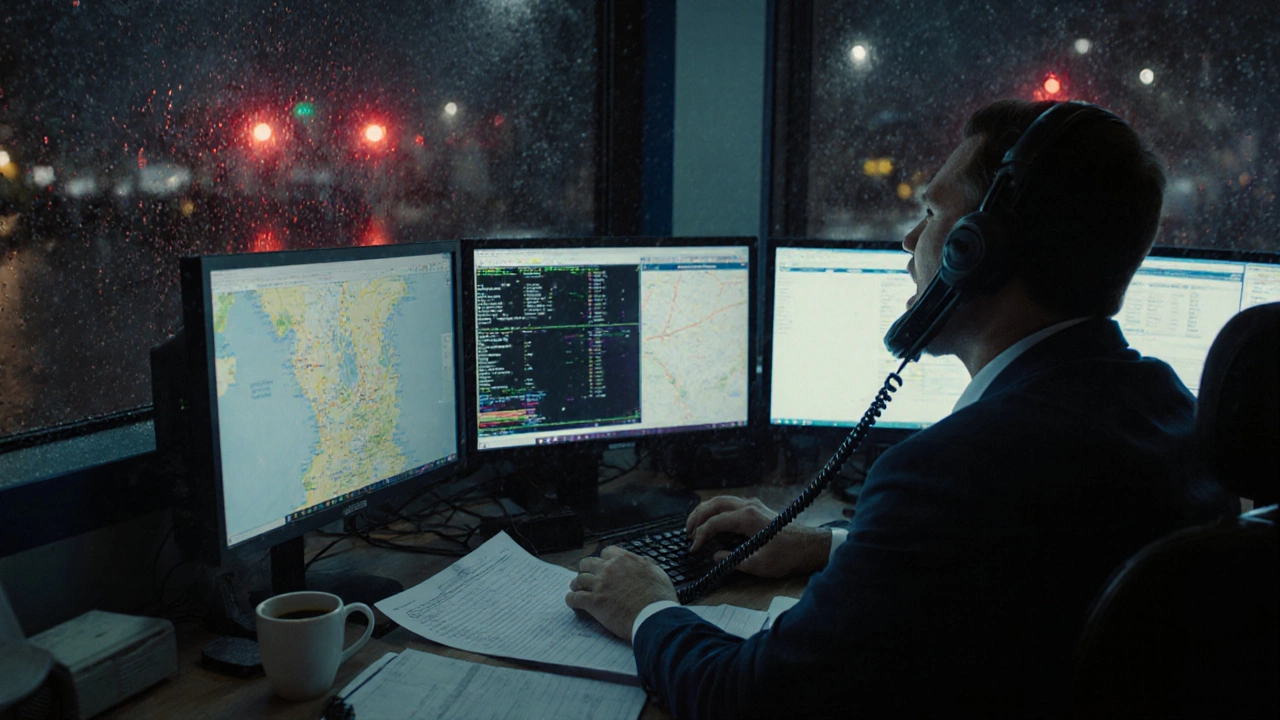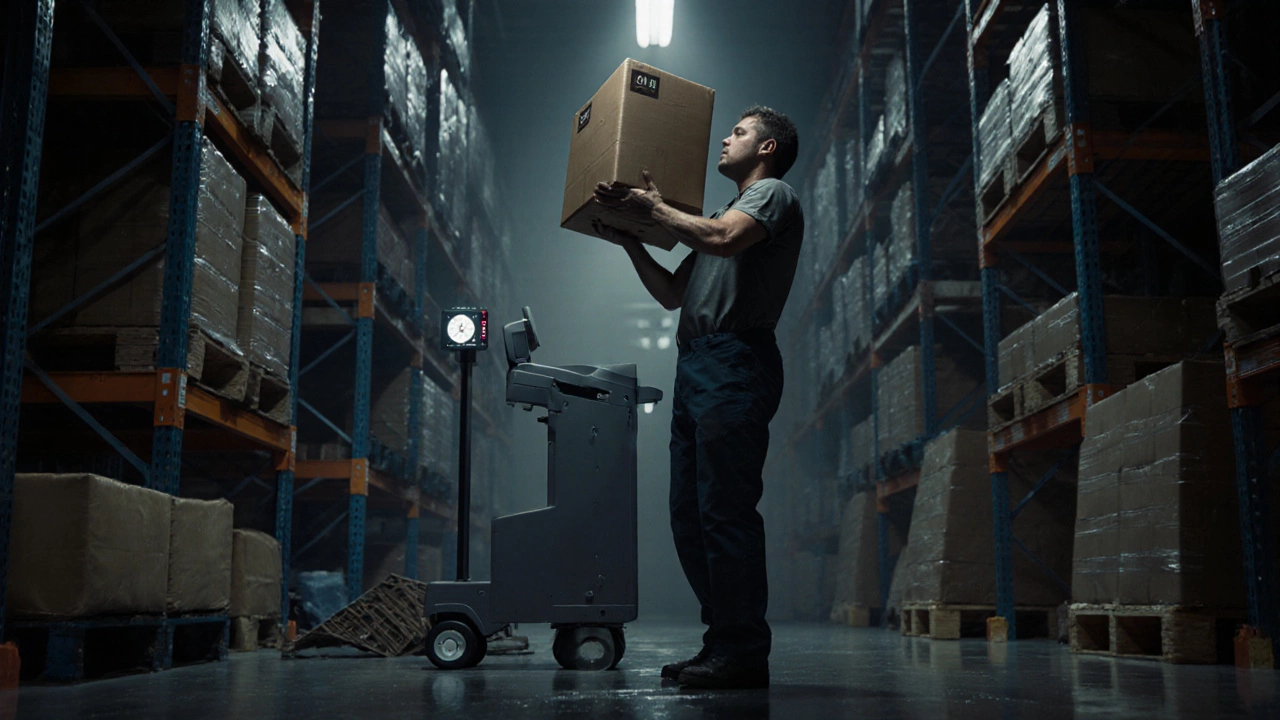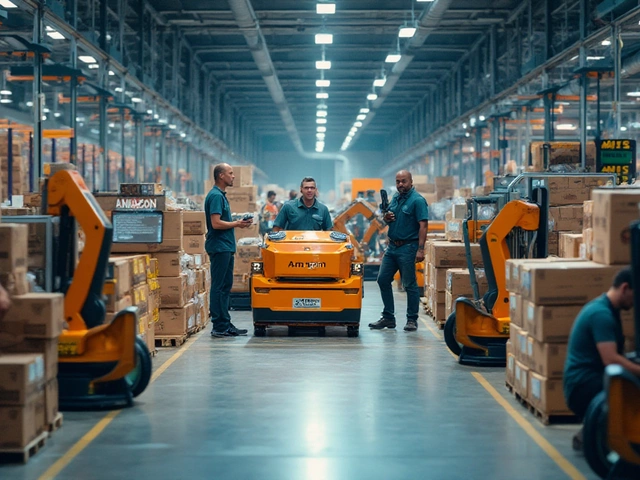People think logistics is just driving trucks or stacking boxes. It’s not. A logistics job is a high-stakes, high-pressure role that keeps the entire global economy moving-often with little recognition. If you’re wondering whether this career is right for you, here’s the truth: it’s physically tough, mentally exhausting, and emotionally draining… but also deeply rewarding if you know what you’re getting into.
It’s Not Just About Driving a Van
Most people picture a logistics worker as someone behind the wheel of a delivery van. But that’s only one slice of the pie. Logistics jobs include warehouse supervisors, freight coordinators, inventory analysts, dispatchers, customs brokers, and supply chain planners. Each role carries its own set of pressures. A warehouse picker in Manchester might walk 12 miles a day lifting 50-pound boxes. A dispatcher in Birmingham could be juggling 200 deliveries a shift, rerouting drivers during traffic jams, storms, or vehicle breakdowns-all while answering angry customers on the phone.According to a 2024 survey by the UK Logistics Association, 68% of frontline logistics workers reported feeling "constant time pressure" during their shifts. That’s not occasional stress. That’s daily.
Long Hours and Unpredictable Schedules
Forget 9-to-5. Logistics runs 24/7. If you work in international shipping, you’re on call when cargo arrives at Felixstowe Port at 3 a.m. If you’re in ecommerce logistics, you’re scrambling after midnight when Amazon’s system drops 10,000 new orders. Weekend work isn’t optional-it’s standard. Holidays? You’re working while everyone else is eating turkey or opening presents.Many logistics roles operate on shift patterns that disrupt sleep cycles. Night shifts followed by early mornings become routine. A study from the University of Bristol found that logistics workers are 40% more likely to suffer from chronic fatigue than office workers in similar age groups. Your body doesn’t get used to it-it just learns to cope.
The Mental Load Is Heavier Than the Boxes
It’s easy to underestimate how much thinking goes into logistics. One missed delivery can trigger a chain reaction: a retailer loses sales, a customer leaves a bad review, the company gets fined. That pressure sits on the shoulders of someone who might be managing 50+ deliveries a day with zero margin for error.Think about this: a single mislabeled pallet in a warehouse can send a hospital’s order of insulin to the wrong city. A wrong address entered into a system can delay a newborn’s formula delivery by 48 hours. These aren’t hypotheticals-they happen weekly. And when they do, the logistics worker gets blamed, not the software glitch or the miscommunication between departments.
That’s why top logistics roles require strong problem-solving skills, attention to detail, and emotional resilience. You’re not just moving goods-you’re managing risk.
Physical Demands Are Real
If you’ve never lifted a pallet or pushed a heavy trolley through a narrow warehouse aisle, you don’t know what this job does to your body. Repetitive motion, awkward postures, and heavy loads lead to injuries. The Health and Safety Executive (HSE) reports that warehouse and logistics workers have one of the highest rates of musculoskeletal injuries in the UK-back strains, shoulder tears, and knee damage are common.Some companies provide ergonomic equipment and training. Others don’t. In smaller logistics firms, you’re expected to handle whatever comes your way-no safety officer watching over your shoulder. You learn quickly: how to lift properly, how to pace yourself, how to ignore the ache in your lower back until the shift ends.

Technology Doesn’t Make It Easier-It Just Changes the Pressure
You might think automation has made logistics easier. It hasn’t. It’s made it faster and more complex. Warehouse staff now use handheld scanners, barcode systems, and real-time inventory dashboards. If your scan doesn’t register, the system flags you as underperforming. If you’re 20 seconds slower than the target time, you get a warning. If you miss three targets in a week, you’re called into HR.Software like SAP Logistics or Oracle Warehouse Management tracks your every move. It doesn’t care if you had a bad night’s sleep or if your kid was sick. It just measures output. The result? Workers feel like they’re being monitored like robots, not treated like humans.
But It’s Not All Bad
Let’s be clear: this job isn’t for everyone. But for those who stick with it, the rewards are tangible. You see the direct impact of your work. That package you delivered? It’s a birthday gift. A medical device. A new laptop for a student. You’re part of the invisible infrastructure that keeps modern life running.There’s also stability. Logistics is one of the few industries that doesn’t shrink during recessions. People still need food, medicine, and goods-even when the economy dips. Entry-level roles pay £12-£15/hour in the UK, with overtime pushing that higher. With experience, you can move into management, planning, or logistics software roles earning £40,000+.
Many workers say the camaraderie keeps them going. You build real bonds with your team. You learn to trust each other when the system fails, when the truck breaks down, when the weather turns nasty. That loyalty doesn’t exist in many office jobs.
Who Should Avoid This Career?
If you need a predictable schedule, hate physical work, or get easily overwhelmed by stress, logistics isn’t the field for you. If you’re looking for a quiet desk job with regular hours, look elsewhere.Also avoid it if you expect praise. Most logistics workers are invisible until something goes wrong. No one thanks you for the 99 deliveries you made on time. But if you miss one? Everyone knows about it.

Who Thrives in Logistics?
People who do well here are practical, reliable, and calm under pressure. They don’t need to be the center of attention. They like structure but can adapt when things fall apart. They take pride in getting things done-even if no one sees it.Many of the best logistics managers started as warehouse pickers. They didn’t have degrees. They had grit. They learned the system from the ground up. If you’re willing to work hard, show up every day, and learn the ropes, there’s a clear path forward.
Final Thoughts: Is It Hard? Yes. Is It Worth It? It Depends.
A logistics job is hard-physically, mentally, and emotionally. It demands resilience, discipline, and thick skin. But it also gives you purpose, stability, and a sense of accomplishment few other jobs offer. You’re not just moving boxes. You’re keeping the world running.If you’re considering this path, talk to someone who’s been doing it for five years. Ask them about the worst day they’ve had-and the best. That’s the real picture.
Is a logistics job physically demanding?
Yes, many logistics jobs are physically demanding. Warehouse workers often lift heavy items, stand for long hours, and walk several miles per shift. Common injuries include back strains, knee pain, and shoulder damage. Companies with good safety programs provide training and equipment, but not all do. Physical fitness and proper lifting techniques are essential.
Do logistics jobs pay well?
Entry-level logistics roles in the UK typically pay between £12 and £15 per hour. With overtime, night shifts, or weekend work, earnings can reach £18-£22/hour. Experienced supervisors or planners can earn £35,000-£50,000 annually. While not the highest-paying jobs, they offer stability, overtime opportunities, and clear paths to advancement without needing a degree.
Are logistics jobs stressful?
Extremely. Logistics workers face constant time pressure, high expectations, and zero room for error. A single mistake can delay a critical shipment, trigger customer complaints, or cost the company money. Many report high stress levels due to unpredictable schedules, tech monitoring, and lack of control over external factors like traffic or weather.
Do you need a degree to work in logistics?
No, most entry-level roles don’t require a degree. Many workers start as warehouse assistants or drivers and move up through experience. Certifications in forklift operation, inventory management, or health and safety can help, but hands-on skills and reliability matter more than paper qualifications. Higher-level roles like supply chain analyst or logistics manager often benefit from a degree, but it’s not mandatory.
What’s the biggest challenge in logistics jobs?
The biggest challenge is managing unpredictability. Delays, system errors, weather disruptions, and last-minute changes happen daily. You have to solve problems on the fly, often with limited resources. The mental load of keeping everything running smoothly-while being held accountable for every detail-is what most people find hardest.
Can you advance in a logistics career?
Absolutely. Many logistics managers started on the warehouse floor. With experience, you can move into team leadership, dispatch coordination, inventory control, or supply chain planning. Some companies offer internal training programs. Others support certifications like CILT or Chartered Institute of Logistics and Transport qualifications. Advancement is based on performance, not just seniority.
Next Steps: Is Logistics Right for You?
If you’re thinking about starting in logistics, try a temporary or part-time role first. Many agencies offer short-term warehouse gigs with no experience needed. See how your body holds up. See how you handle the pressure. Talk to the team. Ask them if they’d do it again.Logistics isn’t glamorous. But it’s necessary. And if you’ve got the grit, it can be one of the most honest, grounded, and meaningful careers you’ll ever have.





